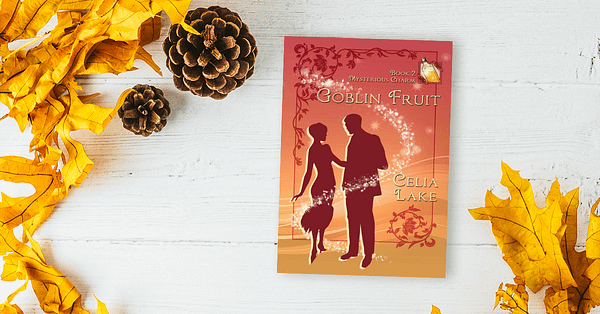Seven Sisters is simultaneously an outgrowth of some of the larger worldbuilding and my (somewhat odd) Classical education. It’s also about the density of history, the role of time, and the question of how much of other people we can begin to understand, anyway. Also a touch of sign language and magic.

The Fatae
First and foremost, this was a chance to explore the Cousins, those who descended from the more human of the Fatae, in this case the seven Grandmothers. (There may be others out in the world, for the record, even in Britain.)
The Grandmothers have a sizeable number of opinionated and very busy descendants, who refer to each other as Cousins. Some look entirely like other humans, others have features that are a little less so – particularly odd eye colours, sometimes hair. They work closely with a number of the non-human shaped Cousins, everything from the custos dragons (see Fool’s Gold for one) to the Belin (see Goblin Fruit), to the trees we see in this book.
(There’s more about Robin in Fool’s Gold, as well, and his particular Aunts. And a bit of Vivian.)
One of the things I wanted, as I wrote about the Cousins, was the sense that they are a large sprawling clan. They know of each other, but they may not know individuals very well. They have interconnections, they end up at the same rites and festivals every so often.
But they also have their own individual preferences and priorities, and those may or may not overlap. There are customs, but a lot of room for personal choice. (All right, and quite possibly some disapproval for some choices.)
Classics
When I started writing this book, I had a very hard time making Cadmus interesting. I kept trying different things, and none of them quite worked. Around about chapter 8, my editor, Kiya (who sees all my completely raw drafts as I finish chapters, since they’re also a long-time friend), nudged me and suggested I lean into the geekery of the Classics.
That was absolutely the right decision, and made Cadmus make much more sense – to himself, to me, and I believe to the reader.
I worry, sometimes, that I’m leaning too much into my geekery. But then I remember that if I’m finding it fun, that comes across. I can explain why it’s amusing or interesting, or give people who might not be familiar with that particular topic some ways to understand it. I love that part.
In this case, Cadmus is drawing heavily on my own background. My father was trained as a Classicist (and read both ancient Greek and Latin easily), though he ended up as a professor in a different field. I didn’t learn Greek until after his death, but I’ve had a number of his translations to draw on.
Cadmus translating Herodotus, however, comes out of one of my Greek classes. It was a small class – just four of us – and I regularly studied with someone else in the class. We’d alternate looking up words in the lexicon, which made the process both more enjoyable and go a bit faster.
What Herodotus is writing about basically falls into one of two broad topics: 1) the customs of people who are not Greeks, and 2) fighting and battles. We quickly figured out that if it was a noun we didn’t know in the first category, it was probably about food or entertainment. If it was a verb we didn’t know in the second, we could translate it as “to attack” and work on it from there.
(There is a verb he uses in the battle of Thermopylae that can reasonably be translated as “to make pincushions out of one’s enemies with spears”. Attic Greek has a lot of variations on ‘to attack’.)
Mostly, I just wanted to have fun with how ridiculous it can sometimes be.
The density of history
This book brings out how you have so many overlapping points of view. You get a glimpse of it, with the range of residents at Thebes, people whose varied stories have brought them to this place at this time. Some because they’re academics, and it’s convenient to their work. Some because they need somewhere different to be, that isn’t reminding them constantly of who and what they’ve lost. Some for other reasons. (Hello, Robin.)
And then you’ve got the question of what that history means going forward – Fool’s Gold is partly an answer to sorting some of that out, one way it might go. It doesn’t mean forgiveness, necessarily. It doesn’t mean an apology mends everything, and the house is one big happy family again. For one thing, it didn’t start that way. But it does mean that you can look at where you’ve come from, and move forward.
That’s where Cadmus is, too. After a deeply traumatic experience in Afghanistan, he has choices to make about what he does now. He and Farran have choices about Farran’s apprenticeship. And that’s the thing – they do have some choices. Not all the choices in the world. Not the choices to change the past. But they have options going forward, if they wish to take them.
(As does Vivian. As does Robin. As does everyone else.)
Sign language
Finally, Lena, the housekeeper at Thebes, is deaf (she wouldn’t identify as culturally Deaf) and uses sign language with both Cadmus and Farran, but also, it turns out, with Vivian, who learned it in slightly different circumstances.
I had a chance to spend an afternoon with someone before a professional conference who is Deaf, and from New York state. We were down in Texas, and their conversation over lunch was the two of them sorting out regional signs and how to navigate that (just like every other language, ASL has regional accents, basically. And that’s before you get into things like how to sign specialised professional language or names.)
I wanted to explore some of that, people who share a language, but who come to it from different places, who learned it for different specific reasons, and how quickly Lena gets a (quite accurate) read on Vivian. I also had a fun time figuring out what name signs Lena might use for different people. Name signs usually reflect something about the person’s name, but also about their personality or interests.
If any of this intrigues, and you want a touch of magic, some dangerous roses, and a house with history down to its bones in your life, check out Seven Sisters.

